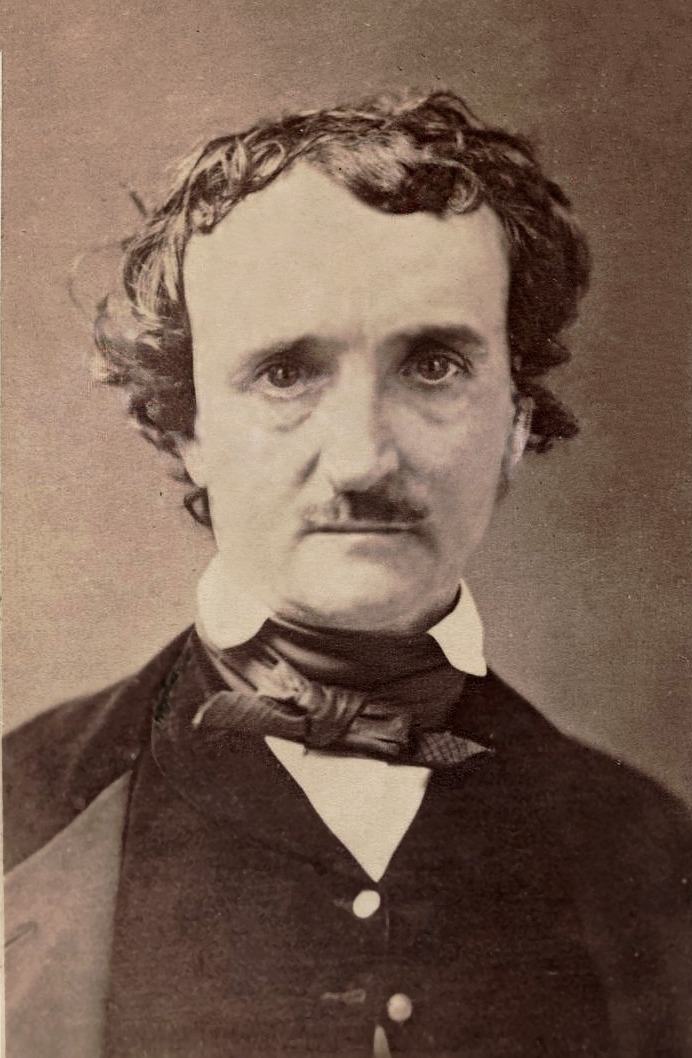The Poetic Principle on:
[Wikipedia]
[Google]
[Amazon]
 "The Poetic Principle" is an
"The Poetic Principle" is an
"The Poetic Principle" – Full text from the first printing, the ''Home Journal'', 1850
Essays about poetry Essays by Edgar Allan Poe Essays in literary theory 1850 essays {{poetry-essay-stub
 "The Poetic Principle" is an
"The Poetic Principle" is an essay
An essay ( ) is, generally, a piece of writing that gives the author's own argument, but the definition is vague, overlapping with those of a Letter (message), letter, a term paper, paper, an article (publishing), article, a pamphlet, and a s ...
by Edgar Allan Poe
Edgar Allan Poe (; January 19, 1809 – October 7, 1849) was an American writer, poet, editor, and literary critic who is best known for his poetry and short stories, particularly his tales involving mystery and the macabre. He is widely re ...
, written near the end of his life and published posthumously in 1850, the year after his death. It is a work of literary criticism
A genre of arts criticism, literary criticism or literary studies is the study, evaluation, and interpretation of literature. Modern literary criticism is often influenced by literary theory, which is the philosophical analysis of literature's ...
, in which Poe presents his literary theory
Literary theory is the systematic study of the nature of literature and of the methods for literary analysis. Culler 1997, p.1 Since the 19th century, literary scholarship includes literary theory and considerations of intellectual history, m ...
. It is based on a series of lectures Poe had given late in his lifetime.
Synopsis
The essay argues that a poem should be written " for a poem's sake" and that the ultimate goal of art isaesthetic
Aesthetics (also spelled esthetics) is the branch of philosophy concerned with the nature of beauty and taste, which in a broad sense incorporates the philosophy of art.Slater, B. H.Aesthetics ''Internet Encyclopedia of Philosophy,'' , acces ...
. He also argues against the concept of a long poem, saying that an epic
Epic commonly refers to:
* Epic poetry, a long narrative poem celebrating heroic deeds and events significant to a culture or nation
* Epic film, a genre of film defined by the spectacular presentation of human drama on a grandiose scale
Epic(s) ...
, if it is to be worth anything, must instead be structured as a collection of shorter pieces, each of which is not too long to be read in a single sitting.
The essay critiques, sometimes rather sharply, the works of other poets of his time. His most common complaint is against didacticism
Didacticism is a philosophy that emphasises instructional and informative qualities in literature, art, and design. In art, design, architecture, and landscape, didacticism is a conceptual approach that is driven by the urgent need to explain.
...
, which he calls a "heresy
Heresy is any belief or theory that is strongly at variance with established beliefs or customs, particularly the accepted beliefs or religious law of a religious organization. A heretic is a proponent of heresy.
Heresy in Heresy in Christian ...
", and allegory
As a List of narrative techniques, literary device or artistic form, an allegory is a wikt:narrative, narrative or visual representation in which a character, place, or event can be interpreted to represent a meaning with moral or political signi ...
. He specifically targeted Henry Wadsworth Longfellow
Henry Wadsworth Longfellow (February 27, 1807 – March 24, 1882) was an American poet and educator. His original works include the poems " Paul Revere's Ride", '' The Song of Hiawatha'', and '' Evangeline''. He was the first American to comp ...
for his didacticism, something he would go on to call "the heresy of the didactic". According to Poe, Longfellow's poetry was preachy, derivative, and thematically plagiarized. This would later give birth to what was known as "The Longfellow War". Although Poe is referring to poetry here, it is believed that Poe's philosophy against didacticism extends to fiction.
Origins
The essay was based on a lecture that Poe gave inProvidence, Rhode Island
Providence () is the List of capitals in the United States, capital and List of municipalities in Rhode Island, most populous city of the U.S. state of Rhode Island. The county seat of Providence County, Rhode Island, Providence County, it is o ...
at the Franklin Lyceum. The lecture reportedly drew an audience of 2,000 people.
Some Poe scholars have suggested that "The Poetic Principle" was inspired in part by the critical failure of his two early poems " Al Aaraaf" and "Tamerlane
Timur, also known as Tamerlane (1320s17/18 February 1405), was a Turco-Mongol tradition, Turco-Mongol conqueror who founded the Timurid Empire in and around modern-day Afghanistan, Iran, and Central Asia, becoming the first ruler of the Timuri ...
", after which he never wrote another long poem. From this experience, Poe surmised that long poems are unable to sustain a proper mood or maintain a high-quality poetic form and are, therefore, inherently flawed. Critics have suggested that this theory was written so that Poe could justify why "Al Aaraaf" and "Tamerlane" were unpopular.Sova, Dawn B. ''Edgar Allan Poe: A to Z''. New York City: Checkmark Books, 2001: 196.
Publication history
"The Poetic Principle" was published in the ''Home Journal'', in the series for 1850, no. 36, August 31, 1850, with an introductory note byNathaniel Parker Willis
Nathaniel Parker Willis (January 20, 1806 – January 20, 1867), also known as N. P. Willis,Baker, 3 was an American writer, poet and editor who worked with several notable American writers including Edgar Allan Poe and Henry Wadsworth Longfello ...
.
See also
*" The Philosophy of Composition" * 1850 in poetryReferences
External links
"The Poetic Principle" – Full text from the first printing, the ''Home Journal'', 1850
Essays about poetry Essays by Edgar Allan Poe Essays in literary theory 1850 essays {{poetry-essay-stub